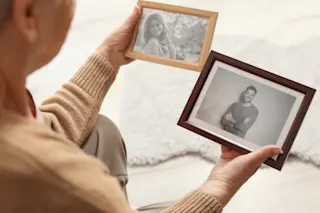Living through eight months of a pandemic is liable to make one yearn for the days of live music, large family gatherings and even carefree visits to the grocery store. We largely took these activities for granted before the virus took hold of our lives, now leaving us with a longing for the past.
Companies that digitize family photos and video collections are reporting a major boost in sales in recent months. And nostalgia could be to blame.
“Because people are unable to travel and create new experiences, nostalgia is trending,” says Mitch Goldstone, chief executive officer at ScanMyPhotos.com. Since shelter-in-place orders began in March in the U.S., his company has seen a nearly 625 percent increase in demand for their services.
Anything from childhood friends to discontinued candy bars can spark feelings of nostalgia. It all begs the question of how this serves our psyche. Mental health experts say ...














